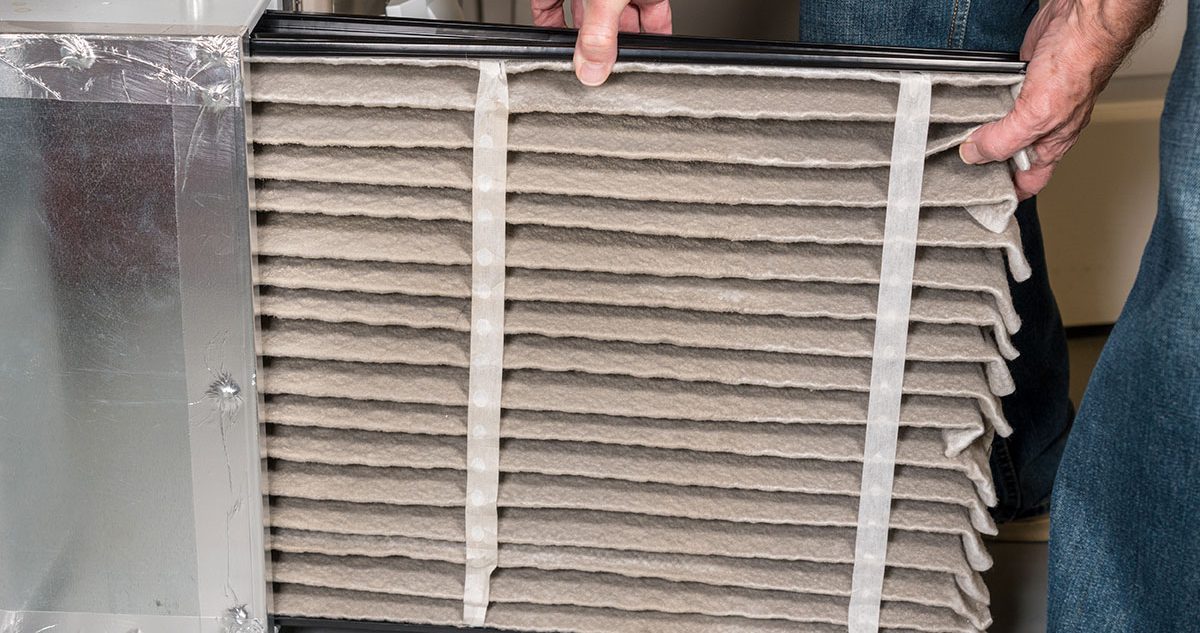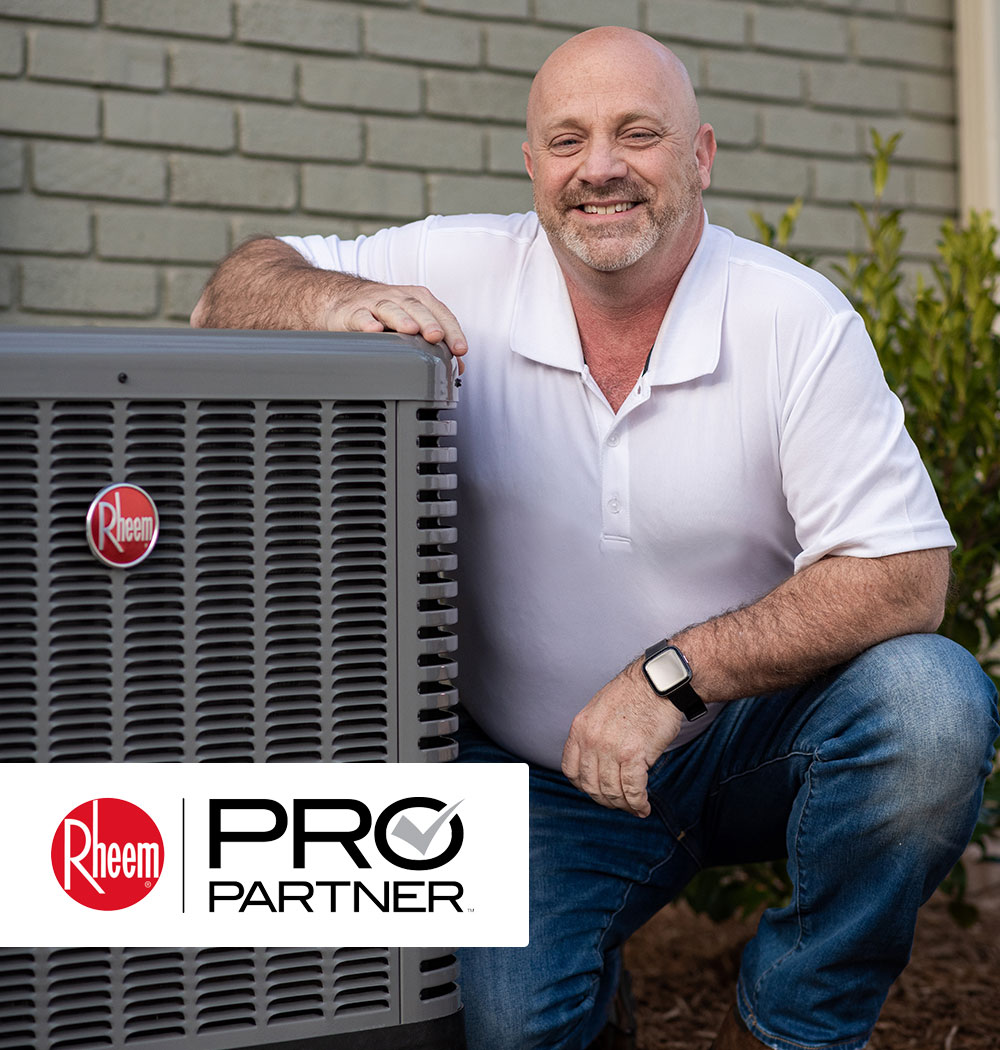
When was the last time you changed the filter in your home’s HVAC system? If you’re drawing a blank (or you didn’t realize your furnace HAS an air filter), keep reading for the details you need.
Aspen Aire is a trusted HVAC company in central Iowa and our customers ask for advice on maintaining their heating and cooling systems. One question we get a lot is, “How often should I change my furnace filter?” The standard recommendation is to change furnace filters every 90 days. However, this will vary depending on factors like whether or not you have pets, the type of filters you use, how often the blower on your HVAC system runs, and more.
In this guide, we’ll cover:
- Why changing furnace filters regularly is important
- How long different types of furnace filters last
- Household factors that can affect filter changing frequency
- How to find the ideal frequency for replacing your furnace filter
- Tips for remembering to change the furnace filter
- Frequently asked questions about changing furnace filters
Why Changing Furnace Filters Regularly Is Important
Your furnace filter plays a vital role in your home’s indoor air quality. As the name implies, it filters out dust, pet dander and other particulates that cause poor indoor air quality and make allergy and asthma symptoms worse. A clean filter will allow air to pass smoothly through your HVAC unit and help your heating and cooling system operate efficiently. This keeps your utility bills down and helps your HVAC system last longer.
How Long Different Types of Furnace Filters Last
There are two main types of furnace filters: flat and pleated. Check your filter for the replacement schedule the manufacturer recommends and adjust as needed.
Flat Fiberglass Air Filters
Flat filters are affordable, but they tend to clog more quickly than pleated filters, so they may need to be replaced as often as every 30 days.
Pleated Air Filters
Although they cost more upfront, pleated air filters trap particles more efficiently, and their increased surface area can help them last longer.
Household Factors that Can Affect Filter Changing Frequency
Pets
Even though we love them, our pets spread fur, dander, pollen, dirt and other debris that can clog furnace filters. If you have a pet, you may need to replace your filter every 60 days. For multiple pets, consider changing your furnace filter once a month.
Weather
Those who live in temperate climates with little need to run the HVAC system throughout the year should be fine with changing their furnace filter every three months. But here in central Iowa with its bitterly cold winters, our filters need to be replaced more often – at least every 60 days. And yes, you need to change your HVAC filter even during air conditioning season.
Health Conditions
If anyone in the household has allergies or asthma, consider using high-quality air filters and replacing them more frequently. This will help reduce allergens and irritants in the home.
Remodeling Projects
With a central heating and cooling system, dust and debris from sanding, scraping and other remodeling jobs will circulate throughout your home every time the air conditioner or furnace runs. We recommend changing your furnace filter as soon as your remodeling project is done.
How to Find the Ideal Frequency for Replacing Your Furnace Filter
- Ask your HVAC technician for their recommendation.
- Write the date on the end of every new furnace filter.
- Note how dirty the filter is next time you change it.
- If there’s a lot of dirt on the filter, change the next one sooner.
- If the filter looks clean, you can wait a little longer next time.
Tips for Remembering to Change the Furnace Filter
We get it: changing furnace filters is a hassle. Even though it only takes a couple of minutes to remove the old filter and slide in a new one, you also have to remember to buy a filter and make sure you get the correct size. Few things are more irritating than FINALLY remembering to buy a new furnace filter, only to realize you have no idea what size you need. Here are some tips to make it easier to change your furnace filter as needed:
- Buy HVAC air filters in bulk and store them near the furnace. You’ll save money and the filters will be there when you need them.
- Consider signing up for a filter subscription service or Amazon’s subscribe & save.
- If you have a smart thermostat, see if it can remind you when it’s time to replace the furnace filter.
- Use a marker to write your filter size on the air return where the filter is so it’s easy to find when you need it.
- Add “change furnace filter” to your calendar or set a reminder in your phone.
- Save the filter size in your notes app on your phone so you can find it when you need it.
Frequently Asked Questions About Changing Furnace Filters
What happens if I don’t change my furnace filter often enough?
Furnace filters that aren’t changed often enough can get clogged. This can lead to poor indoor air quality, making respiratory symptoms worse, especially for those with asthma and allergies. Eventually, a clogged filter will cause the airflow through your ductwork to be reduced and your furnace to work harder. This increases your energy bills and shortens your heating system’s lifespan. If the filter’s clogged badly enough, your furnace can overheat and shut down. Compared with the cost of an expensive furnace breakdown, replacement filters are an inexpensive investment.
How do I know if my furnace filter needs to be replaced?
The easiest way to see if your furnace filter needs to be changed is to look at it. If you can see visible dirt, dust or debris on the filter, replace it. Other signs your furnace filter needs changing include reduced airflow from your vents, strange sounds coming from your furnace, more dust in your home, or increased allergy or asthma symptoms.
Can I clean my furnace filter instead of replacing it?
That depends. If you have disposable furnace filters (the most common filter type), vacuuming and reusing them is not recommended. If cost is a concern, you can buy a cheaper filter and change it more frequently. Permanent furnace filters are meant to be washed and reused, just be sure to follow the manufacturer guidelines.
What is MERV rating?
When you buy a furnace filter, you’ll notice a Minimum Efficiency Reporting Value (MERV) rating on the label. MERV rating is a performance measure that describes how well a filter can trap particles from 0.3-10 microns. The higher the MERV rating, the better a filter is at capturing these large particles.


